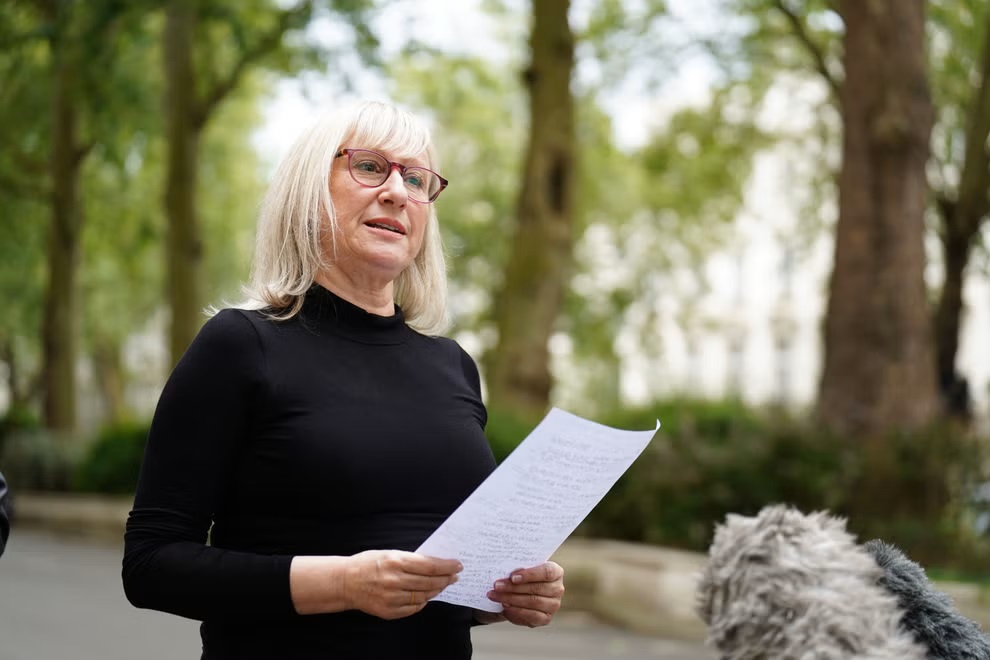‘Multiple Covid failings by NHS Wales’, UK Inquiry told

Martin Shipton
A campaigner representing families who lost loved ones during the pandemic has outlined what she considers to have been multiple failings by NHS Wales to the UK Covid Inquiry.
Anna-Louise Marsh-Rees, co-lead of the Covid-19 Bereaved Families for Justice Cymru group, said: “Many of our members, including my family, could not access their GP. There was never any question that there could be a face-to-face consultation.”
Ms Marsh-Rees’ father caught Covid when in hospital for an unrelated reason, and after being discharged his condition deteriorated. She said: “We had visits from four out-of-hours doctors, not one of whom suggested Covid even though it was written on his discharge summary that he had been exposed to Covid on his ward.
“The 111 [telephone triage] service was not available all across Wales during the pandemic. Three of the health boards didn’t have a 111 service, and this is where the divergence between England and Wales starts.”
Recorded message
One of the group’s members tried to call 111, but there was a recorded message saying such a service wasn’t available: “One of our main concerns is the confusing, conflicting information that we did get when we called, and part of the problem was that there were only three symptoms that were attributed to Covid: fever or chills, a persistent cough and shortness of breath,” she said.
“If you had any of the other symptoms, you were told it was just fine and not to worry, when they were in fact Covid symptoms: extreme fatigue, headaches, nausea, diarrhoea and some others. We’re not suggesting that everybody should have gone to hospital or needed a test with everything, but the lack of acknowledgement that those were Covid symptoms was a real miss.”
The group was aware of at least one example where 111 was called and the family was told repeatedly that their relative’s symptoms were not Covid-related and there was no need to go to hospital, when they had in fact contracted Covid and later died.
999
Members of the group were told not to bother calling 999 for an ambulance, because of the service’s inadequacy, but to take relatives to hospital themselves. Ms Marsh-Rees said: “My sister literally had to bump my dad down the stairs, and take him in the car, when the poor man could barely walk.”
Some of the Covid guidance issued by the Welsh Government was confusing, she said, with the chief medical officer stating, for example, that there was no need to use face coverings.
Ms Marsh-Rees said: “We got conflicting and confusing communication about shielding, for example, pretty much across the board. The symptoms were a key part of that.
“In the shielding letter that arrived the day after my father died in October 2020, he was told that he didn’t need to shield, and that you only needed to take a [Covid] test if you had the three symptoms, and that it was pointless to do one if you didn’t have symptoms, when it was known by that time that you could test positive and be asymptomatic.”
Ms Marsh-Rees said it was also the case that information about local outbreaks of Covid was not released. “It was proactively not broadcast, and I think that’s one of our main concerns – that clusters and outbreaks were not communicated,” she said. Such information was not put on health boards’ websites, and in some instances was not communicated to GPs.
Inconsistency
There was also inconsistency in the standards of care available in different hospitals, said Ms Marsh-Rees: “It does seem crazy that there was not a commonality about processing policies. There should at least be some consistency – and this wasn’t just between health boards, but between hospitals in the same health board,” she said. “There were different rules, different policies and different interpretations of those policies.”
One family had been told they couldn’t visit their relative who was dying, but also they were told they could not have a video call.
Ms Marsh-Rees said: “There was zero patient liaison. I think that’s one of the biggest things as well – the lack of a patient voice, from the patient themself and from liaison with the family. If you can’t see your loved one when they’re dying – which we believe you should anyway – then with the technology we’ve got now, it’s not beyond the whit of man to have an iPad to be able to communicate with them. But then we come back to the lack of digitisation – and in many hospitals there was no wifi. So there were many issues across that communication piece.”
Text message
Some members of the group had to say goodbye to their dying relatives via text message – and they had to hope that the text message was passed over. “We have many examples when loved ones’ items were returned, there were mobile phones with hundreds of missed calls,” she said. “Their world was already quite silent, and I think that added to it..We really have to think about that.
“One of the things I really want to say is that we’ve heard a lot, absolutely rightly, about emergency medicine and what happened in ICUs [intensive care units] – all vital to understand.
“But most of our loved ones were older and died silent deaths: death by indifference, it’s been called. Nobody communicated to them; nobody told them what was happening. They didn’t have communication with their loved ones. And I really do think we need to ponder on that element of it.
“It’s those quiet, silent deaths that are the real tragedy, I would say.”
Support our Nation today
For the price of a cup of coffee a month you can help us create an independent, not-for-profit, national news service for the people of Wales, by the people of Wales.





